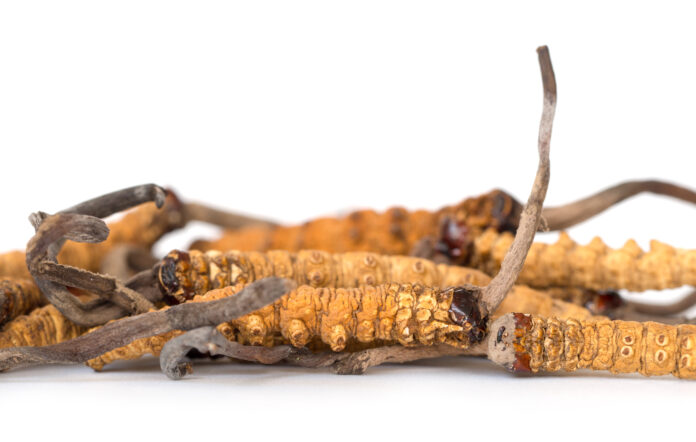An experimental anti-cancer drug made from a compound present in caterpillar fungus shows promising results in Phase 1 trials.
Cordycepin is a nucleoside analogue naturally found in a Himalayan fungus called ‘caterpillar fungus’. The fungus has the ability to kill and mummify moth larvae. Scientists have previously used the compound cordycepin in therapeutic drugs such as antivirals and antibacterial. Moreover, its antioxidant property makes it a promising candidate for anti-cancer drugs. Therefore, researchers at the University of Oxford have now developed an anti-cancer drug using cordycepin. Results of the phase I trial are now available in the journal Clinical Cancer Research.
Although cordycepin has anti-cancer and anti-inflammatory effects, the compound has a low bioavailability as it easily breaks down in the bloodstream. Moreover, it requires the help of a nucleoside transporter called hENT1 for entry into tumour cells. Once inside, the enzyme adenosine kinase (ADK) metabolises the compound, so it can exert its anti-cancer effects. Thus, to counter these obstacles, the researchers modified the compound using ProTide technology. The modified compound, called NUC-7738, was then resistant to these processes and able to enter cells independently.
The ProTide NUC-7738 is resistant to ADA [adenosine deaminase] degradation and is capable of releasing active 3-dAMP into cells, where it is rapidly converted to the key anti-cancer metabolite.
study authors
Promising Phase I Results
As part of the study, researchers administered the anti-cancer drug to 28 patients with advanced treatment-resistant tumours. According to the results, the modified compound was not only 40 times more potent than cordycepin alone but also remained active for at least 50 hours. Moreover, the compound exerted promising anticancer activity and well-tolerated side effects. Thus, proving the drug as a promising option for treating cancers.
Our study provides proof that NUC-7738 overcomes cellular resistance mechanisms and support its further clinical evaluation as a novel cancer treatment within the growing pantheon of anti-cancer ProTides.
study authors
The researchers are now planning for phase II of the clinical trial.
Reference:
Schwenzer, Hagen, et al. “The Novel Nucleoside Analogue Protide NUC-7738 Overcomes Cancer Resistance Mechanisms in Vitro and in a First-in-Human Phase 1 Clinical Trial.” Clinical Cancer Research, 2021, doi:10.1158/1078-0432.ccr-21-1652.




